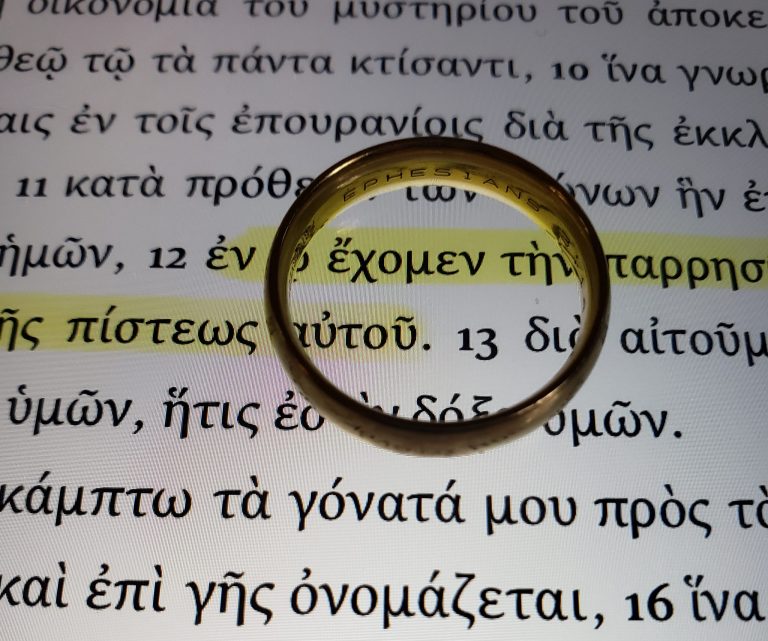Brief Thoughts on Hebrew Poetry
A few days ago Wayne Leman blogged about translating Hebrew poetry, and referred to an article by Philip C. Stine Biblical Poetry and Translation. The article is really excellent, and nothing I’m about to say here is intended to criticize that article as such.
I’ve been very interested in translation of Hebrew poetry, but I think successful translation ranges from difficult to effectively impossible. The two translations I think do the best job into English are the Revised English Bible, and New Jerusalem Bible. One key feature of the NJB is the use of the Yahweh rather than “the LORD” for the name of God, which would obviously make it unacceptable to orthodox and conservative Jewish readers. In poetic terms, however, I think that helps just a bit.
Referring to James Kugel, Stine says:
In fact, he examines many traditional classifications of biblical parallelism, including the categories of Lowth, synonymous, antithetical, and synthetic, and finds them wanting. The ways of parallelism are numerous and varied, and the intensity of the semantic parallelism established between clauses might be said to range from zero perceivable correspondence to near perceivable differentiation.
Now this is a good point, and one that a couple of my professors made to me when I was in graduate school back in 1979-1980, though perhaps not so clearly as Stine has done. The problem is that in order to teach this material to Bible students a bit of terminology is necessary. One can’t just say, even to beginning Hebrew students, that there is “some relationship” between the clauses. Nonetheless, a number of errors result from oversimplification. One of these is the idea that one can determine the definition of an unknown word by finding it in parallel with another term. Now such parallelism can contribute to our understanding of a word, and can give us a starting point in studying it, but it doesn’t determine it, as some people think it does. Without knowing the meaning of the word, the very thing sought, one cannot be certain what type of parallelism one is dealing with.
So let me just suggest here that the terms synonymous, antithetical, and synthetic are quite useful. Like any labeling system, they oversimplify. Indeed, any system of labels is by nature less complex than reality and is provided precisely to allow such simplification. In order to improve accuracy, however, students should be taught that the actual parallelism will lie along a line from complete parallelism of thought to either complete opposition or through a synthetic combination.
Now translating this is much harder, and comes back to the issue of how much interpretation the translator should do, and how much should be left to the modern reader. I’ve been playing around with this before, and commented in Reading Psalm 46, in which I also link to a couple of “transformations.”
Hebrew parallelism does not have the same effect on English readers as it presumably did on readers of the Hebrew original. Thus I would suggest there is room for a broad range of translation possibilities, from a version that copies the poetic forms from Hebrew into English, to ones that might take the thought and express it in an English poetic form. I believe Bible translation and exposition would benefit from more transformations, re-presentations of Biblical material not only in new languages, but in new and/or different forms.
One further note on Stine. He goes through the problems of defining poetry, and that’s a standard problem with Biblical material. Without a solid, understandable definition it’s hard to discuss what is poetry and what’s not, and how to deal with it. I think the problem with this definition is precisely the same as the problem with labels for types of parallelism. We are putting a small number of labels on a continuum–synonymous, antithetical, and synthetic on the one hand, poetry and prose on the other. But poetry and prose do not exist in well defined pockets in real life, and thus our labels will be problematic. On encountering a Biblical passage one might ask, “Should this be presented divided into lines, or paragraphed?” rather than asking whether it’s poetry or prose. Whether it’s technically poetry or not, if it presents well in defined lines, it might be best to present it that way.




